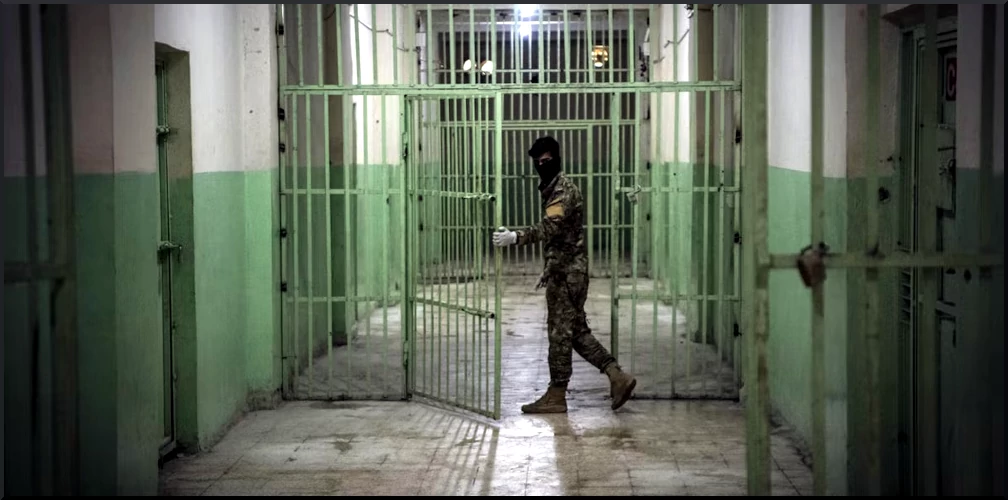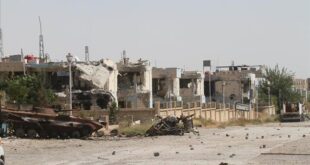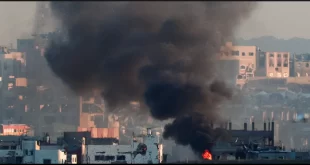from the NewsDesk at The Cradle, published on February 17, 2023
Some 20 prisoners thought to be ISIS members escaped from Raju prison in northwestern Syria on 7 February, AFP has reported. The prison was affected by the massive earthquake that struck southern Turkiye and northern Syria the same day, killing at least 4,300 people. In the wake of the earthquake, prisoners staged a mutiny, allowing the ISIS members to then escape.
The Raju prison is located near the city of Afrin, in a majority Kurdish area of northwest Syria occupied by Turkish-backed militias known as the Syrian National Army (SNA). Armed groups formerly called the Free Syrian Army (FSA) participated alongside Turkish forces in the battle to occupy Afrin, and Turkiye merged these factions in late 2017 under the SNA banner. The factions of the SNA were divided into three corps (the National Army Corps, the Levant Front Corps, and the Sultan Murad Corps), and then all the factions, including Jaysh al-Islam, Faylaq al-Rahman, and the Eastern Ghouta factions, were absorbed under the banner of the SNA.
Before forming the core of the SNA, the FSA was a coalition of Salafist armed groups previously backed not only by Turkiye, but also by the US, Britain, Qatar, Saudi Arabia, and Israel in the effort to topple the Syrian government starting in 2011. The FSA worked closely with Al-Qaeda’s Syrian affiliate, the Nusra Front, in an effort to depose Syrian President Bashar al-Assad.
The Raju prison in Afrin is said to be managed under the direction of Turkish intelligence and is known to hold both imprisoned members of ISIS and of the Kurdish People’s Defense Units (YPG), which Turkiye views as its enemy due to the group’s links with the Kurdistan Worker’s Party (PKK). The FSA took control of Raju prison, which was previously run by the YPG, in March 2018.
ISIS members have escaped from Raju previously, including five who escaped from the prison in December 2019, while another 24 were smuggled out in July 2022, allegedly in exchange for a large payment, according to Kurdish sources.
While Turkish intelligence has been holding some ISIS members as detainees, areas of Syria occupied by Turkiye and its local proxies have also served as havens for the group. Several ISIS leaders have been killed in these areas in recent years, while Turkish intelligence has been accused of providing direct support for the group.
In October 2013, the Wall Street Journal reported that Turkish intelligence acted like a “traffic cop” to facilitate the transfer of weapons across Turkiye’s 565-mile border with Syria in support of jihadist groups.
Al-Monitor reported that this had earned Turkiye the label of “the country nurturing al-Qaeda linked groups,” citing many incidents reported by Turkish parliamentarian Mehmet Ali Edipoglu on Turkish intelligence support in moving weapons and fighters across the border to radical extremist groups.
Additionally, Turkish intelligence officers were meeting directly with ISIS commanders in Turkiye during this same period, according to Ahmet Yayala, a former Turkish counterterrorism police officer.
 Syria Support Movement solidarity with the Syrian people
Syria Support Movement solidarity with the Syrian people





